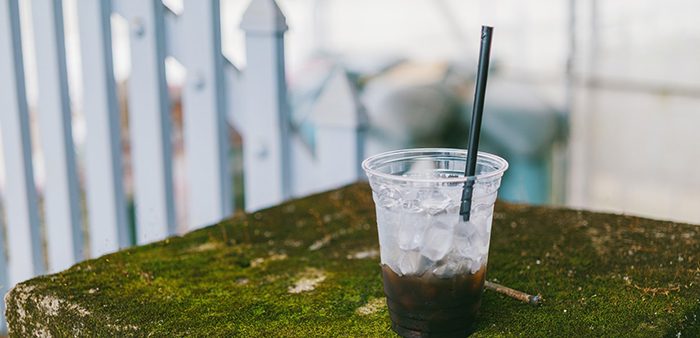
It turns out that going plastic-free is far from easy. In fact, as Will mentioned in his last post, it’s nigh-on impossible. The use of disposable plastics has become so pervasive that it’s only possible to appreciate it once you are trying to cut down, and the problem goes far beyond taking our own bags to the supermarket (although this is a great start). If we all want to make a change in our consumer habits, which as Will explained here is the best way to convince corporations to change their behaviour, then we may need a little extra help. This post will give you a few pointers on where to start.
Consumer activism on plastic.
We can feel as if we have very little control over what goes on in the world. From the use of child labour in cobalt mining (which keeps our smartphones running), heavy metals in the air, to the fact that some corporations pollute on such a vast scale that individual action apparently dwarfs in comparison, it can all feel pretty helpless. However, if enough consumers changed their behaviour, it could make a real difference – especially if it threatens the bottom line.
By committing to reduce our plastic consumption by 50%, the shops who cater to us will naturally change their practices in order to gain our custom. Think of each pound you spend as a vote of endorsement. By choosing items that aren’t covered in plastic as much as possible, you are indicating your approval of less plastic packaging – and shops will quickly adapt to meet consumer demand.
Letting retailers and manufacturers know when they can do better.
You and like-minded friends can send letters or emails of complaint to organisations* when you believe their use of plastic is excessive, and even suggest alternatives. Mention that you will take your custom to competitors who use less plastic, and use specific examples of what they can change.
For example, we recently saw a pack of two avocados (which one may observe are already covered in their own natural packaging) wrapped in a plastic container, which was then placed in a plastic bag. Then there are pears, apples and other fruits, placed to no real benefit on a plastic tray, or the choice to bag bananas even though there’s no conceivable reason for doing so. You may point out that supermarket bakery bags for fresh bread often include a plastic window – even though you’ve had a very good view of the bread as you’ve picked it up to place it in said bag – and this feature is quite wasteful.
When we examine these packaging decisions, they soon appear completely senseless. Plastic may be cheap and available, but considering the damage it’s causing to our bodies and the environment (and the fact it’s made from a finite resource), the nonchalant use of this product is clearly irresponsible. But we all use plastic irresponsibly until we are educated about its impact. Much of the inclusion of plastic in packaging is so casual – often incorporated as a design feature or to make products more appealing – that it may only take pointing out how silly it is to retailers and manufacturers for the situation to change. And as soon as plastic-covered products no longer sell, they will slowly disappear.
Other ways to spread the message.
While focusing first on reducing your own use of plastic is a huge step, there are small things you can do to help others make the change. For example, you might:
- Mention to your favourite coffee shop that encouraging customers to bring their own reusable cup for takeaways is a great idea. 2.5 billion coffee cups are thrown away every year in the UK – and less than 1 in 400 are recycled. Perhaps they could offer a 10% discount to those who bring their own cup, or give them their 7th coffee free. Even just putting a sign in the window may be enough to jog people’s memory.
- If you have school-age children, you could suggest to the headteacher that an assembly or perhaps some lessons based around the use of plastic and plastic pollution could be really helpful, and encourage the school canteen to cut down on its plastic use.
- Write to your local MP to communicate how important this issue is to you, so it gets more representation on a government level.
- Suggest initiatives at work to reduce the use of plastics in the workplace. For instance, your employers may be willing to provide everyone with a reusable water bottle and put a filtered-water pitcher in every break room, to stop people heading to the vending machine for bottled water. Or they might put up posters encouraging staff to bring in their own fountain pens to cut down on the use of throwaway biros. Even small steps like this, across a company, can make a big difference.
It’s in small, everyday steps that we’ll reduce our use of plastics, and empower ourselves to change the world around us.
* When dealing with large chains, try to get in touch with the dedicated customer service team (who can refer the complaint to the relevant staff member) through contacts on brand websites, rather than bringing it up in-store. Alternatively, reach out to higher management, or product manufacturers. Those “on the ground” in shops often do a busy job and have next to no say in how their organisation is run, so won’t be too pleased to deal with complaints that are well above their pay grade!

The Benefits of Beeja Meditation
- Reduce stress and anxiety
- Greater clarity and calm
- Increase focus
- Enhance relationships
- Sleep better
- Feel energised

Leave a Reply